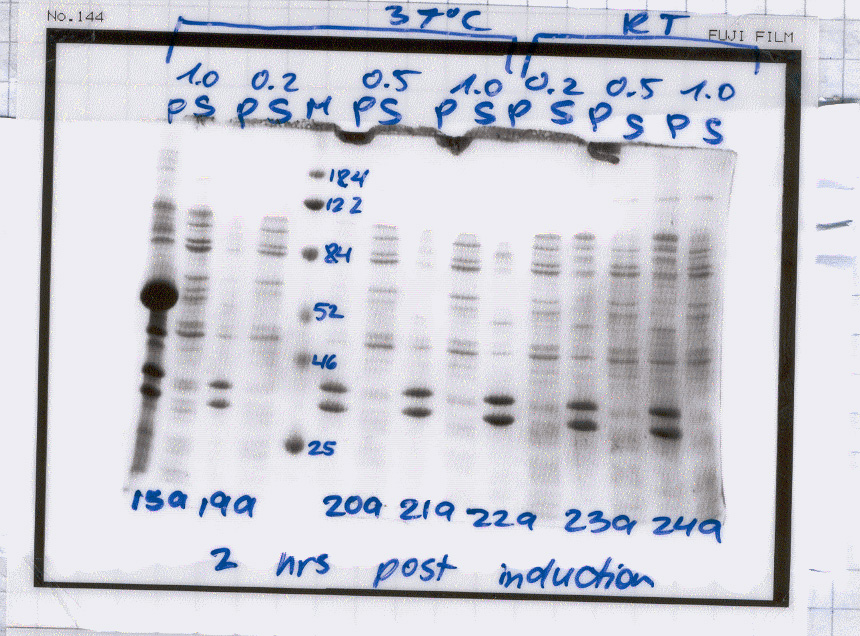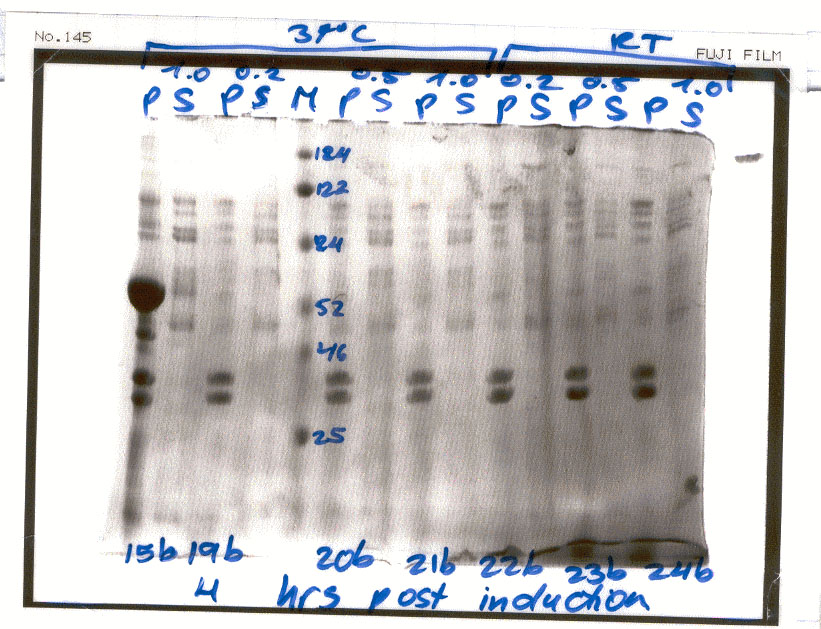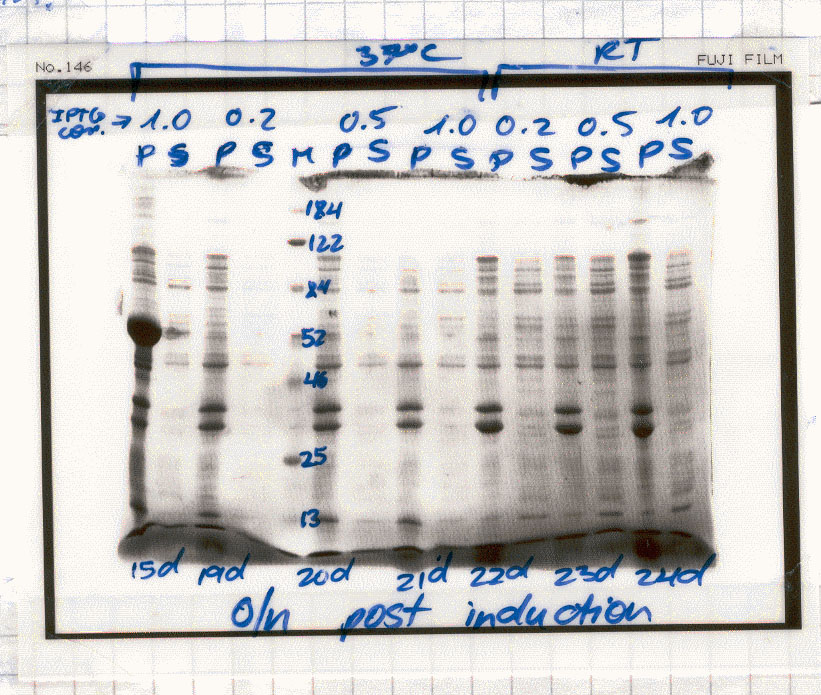Experimental Procedure
Bacteria were grown in 37oc
to OD600 of 0.6. At this point the RT (room temperature) flasks
were transferred to 25oc and allowed to accomodate to the new
tempearture for 15 minutes prior to induction. IPTG (0.2; 0.5 or 1.0 mM)
was than added. Cultures were harvested 2, 4 and 16 hrs post-induction.
Cells were lysed, sonicated and centrifuged (14,000 rpm, 15 minutes, 4oc).
Samples of Supernatant and Pellet were run in PAGE-SDS gels
and subjected to Commassie staining or western blot analysis using anti-GST
antibodies. All western blot images were obtained following an exposure
of 10 seconds.
Note: the
first two samples on the left of each figure (1.0 P and S) are
samples of the control GST-GFP system (expected size ~55 KDa) grown
in 37oc and induced by 1mM IPTG.
Scroll down to see ALL
results.
|
Conditions
|
Coomassie Staining
|
Western Blot (anti-GST
ABs)
|
| OrigamiB pLysS 2 hrs |
 |
 |
| OrigamiB pLysS 4 hrs |
 |
 |
| OrigamiB pLysS overnight |
 |
 |
.
Q3
Go
through the following observations and choose "True" or "False" for each
of them.
There
may be more than one "right" answer.
1. The Commassie
results at all time points show that GST-GFP (~55KDa) is produced, and
no problems are observed.
2. The
produced GST-GFP protein is insoluble, as evident by Commassie staining
and western blots.
3. The
Commassie results at all time points don't reveal differences between the
expression temperatures (37oc and 25oc) and inducer's
concentrations (0.2, 0.5 and 1.0 mM).
4. The
Commassie results of all the NS4B expression samples show two main specific
products (fragments ~35 and 40 KDA), which are insoluble and somewhat shorter
than the expected product.
5. Western
blot analysis of 4 hrs post-induction samples indicates that samples grown
in 37oc give higher protein yields than samples grown in 25oc.
6. Western
blot analysis of all time points does not reveal major differences between
different inducer concentrations.
Have you examined all the
answers?
Continue.
.
Conclusions
These results indicate that
Origami cells support very low levels of NS4B synthesis (observed only
by western blot analysis). The best growth conditions are 25oc,
4 hrs of induction using 0.2 or 0.5 mM IPTG. Even under those conditions
the protein is insoluble and some of the produced protein is of smaller
size than expected.
Let's
examine the growth curves of this strain under the various growth conditions.
.











